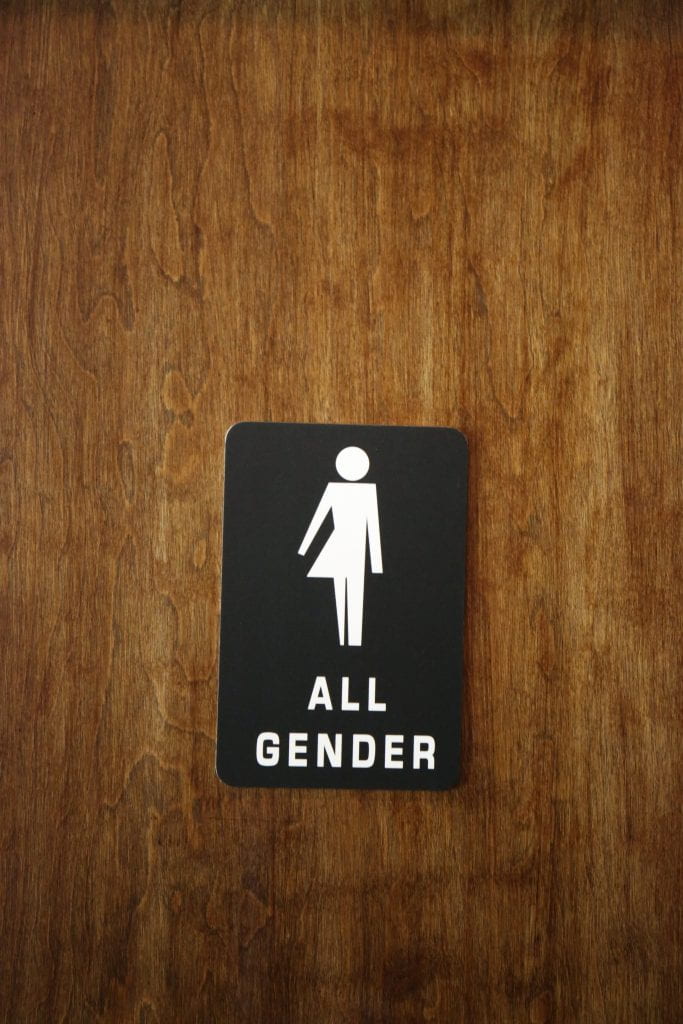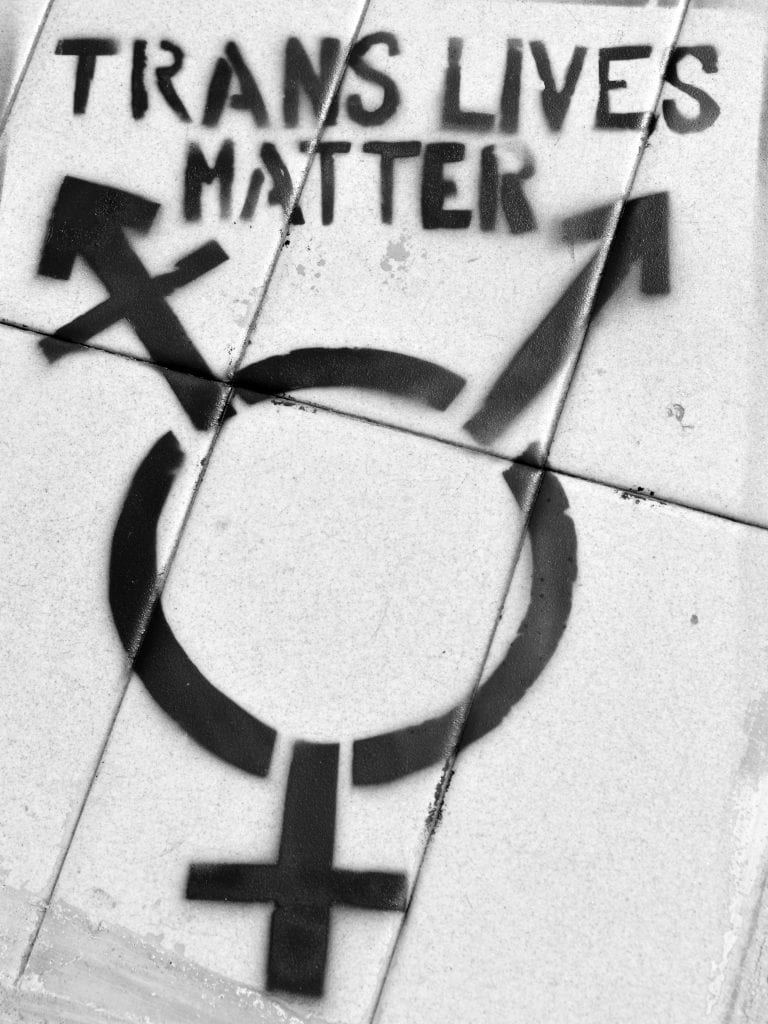
On July 26th, 2017 President Donald J. Trump tweeted the following:
“After consultation with my Generals and military experts, please be advised that the United States Government will not accept or allow… Transgender individuals to serve in any capacity in the U. S. Military. Our military must be focused on decisive and overwhelming… victory and cannot be burdened with the tremendous medical costs and disruption that transgender in the military would entail. Thank you”
The Real Cost to Transgender Americans
Transgender individuals, many of whom already face daily harassment and discrimination for their gender identity, have been shown to actively avoid situations where hostile confrontations may arise. In 2016, after a political storm erupted out of North Carolina and the then-governor Pat McCrory’s “Bathroom Bill”, a landmark study on the lives of 27,715 transgender persons documented several startling changes that occurred in the lives of transgender persons. These include:
- 59% of transgender persons avoiding bathrooms for feared confrontations
- 12% report being harassed, attacked, or sexually assaulted
- 31% avoiding eating or drinking to avoid needing to use public restrooms
- 8% contracting a kidney or urinary tract infection as a potential consequence for avoiding the use of public restrooms
Similar studies also document the prolonged and repeated stress endured by transgender individuals, when using public restrooms, after the “Bathroom Bill” was proposed. Situations in which their minority status is negatively highlighted or emphasized, such as the use of public restrooms, are loaded events for transgender individuals. Until recently, the link between a culture of antagonism towards issues related to transgender individuals and the subjective experiences of these individuals themselves has been suspected but unsupported. A study published earlier this year in the Journal of Abnormal Psychology examined the gravest mental health crisis experienced by transgender persons: suicide.
Transgender individuals, as compared to the general public, are 14 times more likely to think about committing suicide and 22 times more likely to attempt suicide. This horrifying trend holds in countries outside of the United States, and these rates may even be higher in transgender adolescents. With this new data and analysis, the role of culture, across 2 different theoretical models, was shown to significantly impact the rate of suicide ideation in transgender individuals. Suicide ideation was significantly predicted by factors such as victimization (specific attacks on an individual for their status as transgender), rejection (social reluctance to engage with transgender individuals), and non-affirmation (the active reminding of a transgender individual their gender identity is not accepted or validated). To restate the findings, transgender individuals were more likely to seriously contemplate suicide, or wantonly envision a future in which they are not alive, if surrounded by a culture characterized by isolation, discrimination, and outright antagonism. An important caveat remains: researchers will never be able to interview transgender individuals who have completed the act of suicide. The ‘edge point’, or the final motive impelling a transgender individual to successfully end their own life, can be hinted at but will never be known with absolute certainty. However, combining previous research on the statistical likelihood of suicide and suicidal ideation in transgender individuals, coupled with the recently supported theory that culture is a major implicator in the suicide risk of transgender individuals, presents the concerned public with startling information. For these victimized individuals, a culture of transphobia can exacerbate a predisposition for suicide, potentially resulting in a public health crisis with deadly results.

Culture, according to Riane Eisler, is in constant flux. People choose both their internal response to the forces of culture around them and their externally exertion of control over culture in future interactions with others. According to Eisler’s Cultural Transformation Theory, a culture of transphobia (the ignorance, fear, or outright hatred of transgender individuals) can change to a culture of empathy, partnership, and mutual understanding. Likewise, a culture of tentative acceptance can be quickly reversed to one of arbitrary discrimination and empowered domination. One way a pro-social Eislierian cultural transformation for transgender persons can occur is through the creation, maintenance, and protection of human rights for transgender individuals (Eisler, 1988). In the United States, transgender rights have a high degree on variance, mostly along state or jurisdiction lines (a graph displaying specific issues related to transgender rights in the US can be found here). The scant federal rulings on the rights of transgender persons have involved only a few aspects of life for transgender persons, including discrimination in the workplace, marriage equality, and conversion therapy. The rights of trans persons are still in flux, and the Trump Administration may indeed roll back these protections as their time in governance continues. Rollbacks of trans rights might, as is supported by Testa et al.’s and the National Center for Transgender Equality’s research, create a public health crisis for transgender persons. Creating a culture accepting of and empathic to the needs of transgender persons must include comprehensive human rights legislation protecting this vulnerable group without fear of retraction from a hostile administration, such as the Trump administration.
President Trump, under the guise of “medical costs” and unit “disruption”, attempted to used his public platform to instill a culture of blatant disregard for the patriotism, self-sacrifice, and protection of freedom offered by transgender persons who volunteered, volunteer, and may yet volunteer to serve in the United States Armed Forces. The costs he associated with transgender persons serving in the military are non-issues, and a sober analysis of his proposed logic illuminates a stunning disconnect from the actual militaristic consequences of allowing transgender persons to serve in the US Armed Forces. The literature, including both personal and academic accounts, reveals a population within America severely prone to self-harm, suicidal thoughts, and suicide attempts in the aftermath of public controversies regarding a fundamental part of their very identity. The oppression of the transgender community has been shown to have far-reaching and oftentimes permanent consequences for trans persons- such as suicide. The cost to the trans community from attacks such as these far outweigh the illusory costs to the Trump Administration in allowing trans persons to live a life unencumbered by blatant discrimination.
If you or someone you know is contemplating suicide or self-harm, here are resources to contact:
National Suicide Prevention Lifeline (press 1 if you are a US military veteran in crisis): 1-800-273-8255
Trans Lifeline: 877-565-8860
The Trevor Project (youth service): 1-866-488-7386
GLBT National Help Hotline: 1-888-843-4564
Call 911 if you believe there is an immediate threat to your and / or someone else’s physical safety and wellbeing.
References
Eisler, R. (1988). The Chalice and the Blade. San Fransico: Harper.
